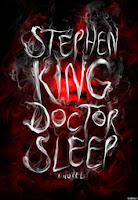 Don't count on it. If Americans were ever exceptional, we've reached a place in 2013 where exceptionalism centers on things like how fat we are and how ignorant we are about the way the world works.
Don't count on it. If Americans were ever exceptional, we've reached a place in 2013 where exceptionalism centers on things like how fat we are and how ignorant we are about the way the world works.For all the attacking from the right on implementation of the Affordable Care Act, are people in this country aware of the fact that we're the only free society in the world that doesn't have single-payer, universal health care for its citizens? If we are to believe the yammering from opponents that we already have the finest health care in the world, there are a couple of questions worth asking:
-- If that's true, how come there are no other countries in the world that emulate our system?
-- If that's true, how come we spend twice as much per capita on health care as other countries and still rank pretty far down the line on most health care metrics?
-- If that's true, how come 50 million Americans aren't covered for any sort of health care?
On a related subject, why is it that deficits are skyrocketing and the public debt has reached a point where it may never be repaid, but no one seems to question why taxes on the megarich are so low?
Famed critic H.L. Mencken wrote in the early 1920s that the American republic would fall in less than 100 years. That's something I have mentioned numerous times before. Mencken said the two reasons this would happen were greed and ignorance -- the massive greed of the rich and the ignorance of average people.
Ever since 2001, our politics has slipped further and further into demagoguery. To me there are three examples that I would have thought would never happen in this country.
First, after the Sept. 11, 2001, attacks, all of a sudden people were talking about "Homeland Security." Russians have long called their country Mother Russia or the Motherland, and Adolf Hitler came to power in Germany talking about the Fatherland. Did we become so confused, so frightened after the attacks that we forgot how we don't look at our country?
We're not anybody's "homeland." We are the United States of America.
Second, we let people tell us that slashing taxes on the wealthiest among us would be good for all of us. It was never true before. It wasn't true when Ronald Reagan did it, so why should we not only do it but have the Republicans continually pushing for lower and lower taxes for the rich?
The irony of it is that these same rich people have become incredibly arrogant. Robert Benmosche, the head of bailed-out AIG, told the Wall Street Journal he was upset that people had the nerve to complain about the massive bonuses AIG paid during the bailout. In fact, Nobel Prize-winning economist Paul Krugman wrote, Benmosche compared the backlash to the old days in the South when people were lynched.
Third, so much of what we see, hear and read in the media is designed for one purpose -- to keep us worked up about meaningless things so that we won't pay attention to what is being stolen from us. In the 1950s, the top 1 percent among us had 7 percent of the wealth. The most recent numbers, from 2011, show that 7 percent has grown to 19 percent.
There's no reason to admire someone just because they made a lot of money, and there's certainly no reason to admire someone because someone left them a lot of money. Four of the richest people in America got their money when Sam Walton died and left it to them, and what they're best known for is spending millions on political donations to people who want to abolish the estate tax.
Our country is starting to look like France before 1789 or Russia in the last days of the czars. We have a self-created aristocracy that is living way beyond reality and a large working class that is barely getting by.
 Where do we go from here? The irony is that the only people really worked up are the teabaggers, and they have been manipulated into attacking the wrong targets. We could eliminate every dollar the government spends on the poor and the working class and it wouldn't make a dent in the deficit with taxes on the rich as low as they are.
Where do we go from here? The irony is that the only people really worked up are the teabaggers, and they have been manipulated into attacking the wrong targets. We could eliminate every dollar the government spends on the poor and the working class and it wouldn't make a dent in the deficit with taxes on the rich as low as they are.The problem is that the megarich -- many of whom aren't even American -- are going to milk the country for everything they can until everything falls apart.
And my guess is that when it does, we're not going to see old-time America or even some sort of misguided Libertarian paradise. When push comes to shove, we're going to see someone in charge who can keep order, who can keep the trains running on time, who can protect the rich from the rest of us.
Worst case scenario, an American Hitler.
Best case, an American Mussolini.
It isn't too late yet, but it's getting later all the time.


.jpg)








.jpg)












.jpg)









.jpg)





